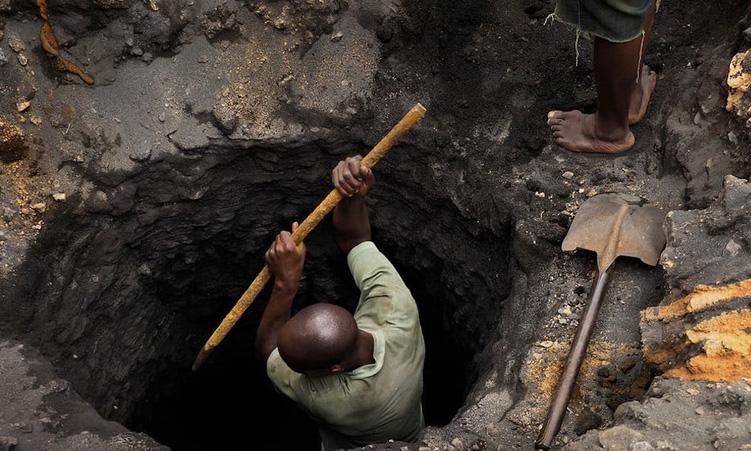IN his stunning novel ‘The Remains of the Day’, Kazuo Ishiguro, the Japanese-British novelist, narrates in exceedingly ironic fashion the story of butlers in 20th century England.
In essence, the novel revolves around Stevens, a loyal butler to Lord Darlington (and later Mr Farraday) whose raison d’être was maintaining the highest standards in his profession, even if it meant refusing the advances of one of his most gorgeous female colleagues, Miss Kenton. I don’t think that many of us would admire “weak-willed” Stevens or aspire to become butlers in a free Namibia! Nonetheless, I shall return later to this butler to argue why we should read this novel and emulate Stevens.On the whole, Stevens’s narrative invokes an issue that elevates deep concerns about the future of Namibia: our sense of metier or trade and through that our role as a generation(s) in building the country.On our future, I am logically caught between two extremes: the first is that this country might succeed and the other is that it might fail.If I were to hazard a guess, failure will turn out to be a generational issue.It is generational because I come from a generation that is not mercilessly free of a profound confusion about professional values and success.For conceptual purposes, I am talking about a generation that was old enough to experience the horrors of apartheid (both in exile and at home), yet privileged enough to live long in a free Namibia.I am aware that raising some of the issues that I am about to will certainly make me appear like a black bourgeois basher.Let me then put my case in a context: Since Independence, this country saw a generation of mostly liberation leaders or politicians tout court at work.And rightly so, a young businesswoman argued brilliantly at a dinner at which I hosted a liberation leader (for a chat with my generation), that the old guard should start packing their bags.But there is a caveat before this generation goes.And I am sorry to say that my generation has been too much preoccupied with the trimmings of wealth and we have taken a competitive attitude towards ‘showing off’ many of our trivial accomplishments.Essentially, we tend to turn our attention to our ‘somebodiness’ owing to our making it in the new Namibia.In fact, the “worship of material things” as Prime Minister Nahas Angula cautioned during the Avid scandal is what drives my generation into corrupt deals and a rush to get rich quickly.Yet, for our liberation leaders the glorious life was a highly disciplined one and translated into an intensely demanding way of struggle that meant personal sacrifice for our liberation.Initially, I would have thought that my generation would show an unwavering commitment to the values of a just society.And we would defend these values as a crop of future intellectual, business and political leaders.I assumed that we would live by the aphorism of the moral philosopher Immanuel Kant: “Freedom shouldn’t be explained, it should be defended”.Lamentably, I am coming to realise that much of the educated black middle class or the “tenth element” as the outstanding Africanist W.E.B du Bois would term it, is not up to the task of defending freedom and fighting for a just society.This view found credence recently when a prominent professional told me that he agrees with many of the issues that I raise in Post Scriptum as a public intellectual, yet he was not prepared to take them further (even if they had far-ranging consequences for our freedom) because he had bills to pay at the end of each month.This argument actually flew in my face for it implicitly meant that the fusing of the intellectual musings of the Sorbonne with the realities of Namibia’s socio-political life as I do in my column, epitomises in short, my naiveté.This is the moral and ethical rot that lies at the heart of my generation.Such calculations and thinking are in need of ethical evaluation for they are repugnant for our country.I have no clue (but you can speculate) what this country would have been if liberation leaders such as Sam Nujoma, Hage Geingob or Hidipo Hamutenya opted to continue their ordinary lives as railway workers and teachers in order to feed their families.Instead, being professional would primarily be about discussing fees and business deals instead of profound discussions about the substance of our professions and how we can use our professions to defend and construct a just society.Being an academic at the University of Namibia, instead of being a celebration of the mind, has become a symbol of failure because of our confusion about what should constitute university life and success.Similarly, what is of interest to the new generation of MPs is a chauffeur, the title of ‘honourable’ and the costliest wedding of our times at the expense of a commitment to service.Admittedly, this dominant outlook and lifestyle of the emerging black middle class discourages the development of high quality political and intellectual leaders in the tradition of some of our liberation leaders.It is deficient and decadent because it occurs at the expense of professional conscientiousness and most importantly at great cost to the future of this country.To conclude, irrespective of how I look at things, my generation might sit with failure or it might fail.For this reason, failure is not an option and just like Stevens in Ishiguro’s ‘Remains of the Day’ we need to commit ourselves to our lives as professionals and workers and strive for the high standards that modern societies demand, now and when we take over.* Alfredo Tjiurimo Hengari is a PhD fellow in Political Science at the University of Paris Panthéon Sorbonne, France.I don’t think that many of us would admire “weak-willed” Stevens or aspire to become butlers in a free Namibia! Nonetheless, I shall return later to this butler to argue why we should read this novel and emulate Stevens. On the whole, Stevens’s narrative invokes an issue that elevates deep concerns about the future of Namibia: our sense of metier or trade and through that our role as a generation(s) in building the country.On our future, I am logically caught between two extremes: the first is that this country might succeed and the other is that it might fail.If I were to hazard a guess, failure will turn out to be a generational issue.It is generational because I come from a generation that is not mercilessly free of a profound confusion about professional values and success.For conceptual purposes, I am talking about a generation that was old enough to experience the horrors of apartheid (both in exile and at home), yet privileged enough to live long in a free Namibia.I am aware that raising some of the issues that I am about to will certainly make me appear like a black bourgeois basher.Let me then put my case in a context: Since Independence, this country saw a generation of mostly liberation leaders or politicians tout court at work.And rightly so, a young businesswoman argued brilliantly at a dinner at which I hosted a liberation leader (for a chat with my generation), that the old guard should start packing their bags.But there is a caveat before this generation goes.And I am sorry to say that my generation has been too much preoccupied with the trimmings of wealth and we have taken a competitive attitude towards ‘showing off’ many of our trivial accomplishments.Essentially, we tend to turn our attention to our ‘somebodiness’ owing to our making it in the new Namibia.In fact, the “worship of material things” as Prime Minister Nahas Angula cautioned during the Avid scandal is what drives my generation into corrupt deals and a rush to get rich quickly.Yet, for our liberation leaders the glorious life was a highly disciplined one and translated into an intensely demanding way of struggle that meant personal sacrifice for our liberation.Initially, I would have thought that my generation would show an unwavering commitment to the values of a just society.And we would defend these values as a crop of future intellectual, business and political leaders.I assumed that we would live by the aphorism of the moral philosopher Immanuel Kant: “Freedom shouldn’t be explained, it should be defended”.Lamentably, I am coming to realise that much of the educated black middle class or the “tenth element” as the outstanding Africanist W.E.B du Bois would term it, is not up to the task of defending freedom and fighting for a just society.This view found credence recently when a prominent professional told me that he agrees with many of the issues that I raise in Post Scriptum as a public intellectual, yet he was not prepared to take them further (even if they had far-ranging consequences for our freedom) because he had bills to pay at the end of each month.This argument actually flew in my face for it implicitly meant that the fusing of the intellectual musings of the Sorbonne with the realities of Namibia’s socio-political life as I do in my column, epitomises in short, my naiveté.This is the moral and ethical rot that lies at the heart of my generation.Such calculations and thinking are in need of ethical evaluation for they are repugnant for our country.I have no clue (but you can speculate) what this country would have been if liberation leaders such as Sam Nujoma, Hage Geingob or Hidipo Hamutenya opted to continue their ordinary lives as railway workers and teachers in order to feed their families.Instead, being professional would primarily be about discussing fees and business deals instead of profound discussions about the substance of our professions and how we can use our professions to defend and construct a just society.Being an academic at the University of Namibia, instead of being a celebration of the mind, has become a symbol of failure because of our confusion about what should constitute university life and success.Similarly, what is of interest to the new generation of MPs is a chauffeur, the title of ‘honourable’ and the costliest wedding of our times at the expense of a commitment to service.Admittedly, this dominant outlook and lifestyle of the emerging black middle class discourages the development of high quality political and intellectual leaders in the tradition of some of our liberation leaders.It is deficient and decadent because it occurs at the expense of professional conscientiousness and most importantly at great cost to the future of this country.To conclude, irrespective of how I look at things, my generation might sit with failure or it might fail.For this reason, failure is not an option and just like Stevens in Ishiguro’s ‘Remains of the Day’ we need to commit ourselves to our lives as professionals and workers and strive for the high standards that modern societies demand, now and when we take over. * Alfredo Tjiurimo Hengari is a PhD fellow in Political Science at the University of Paris Panthéon Sorbonne, France.
Stay informed with The Namibian – your source for credible journalism. Get in-depth reporting and opinions for
only N$85 a month. Invest in journalism, invest in democracy –
Subscribe Now!










